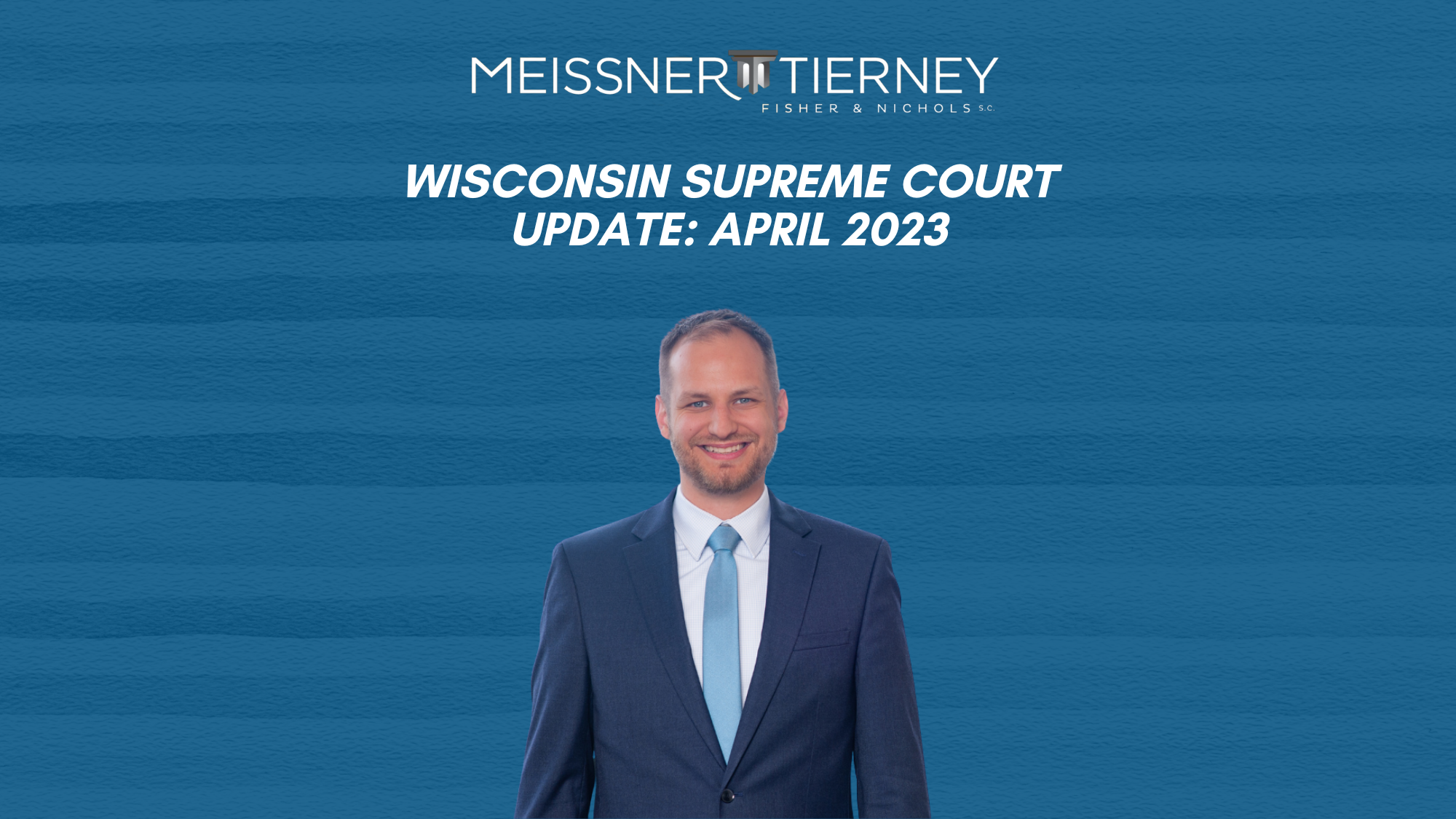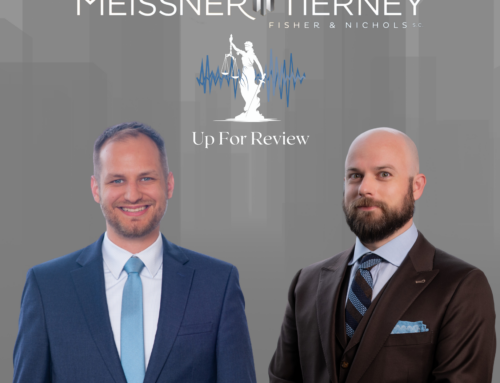The April oral argument calendar for the moment appears to be the last of the term for the Wisconsin Supreme Court, and there’s only one civil case on it. Meanwhile, we have three civil decisions to review, touching on issues ranging from real estate, to public employment, to insurance. Read on for all the latest from Wisconsin’s highest court.
Cases Decided
Casanova v. Polsky, No. 2019AP1728 & 2019AP2063
Real Estate
Decision Filed: March 16, 2023
Public Citation: 2023 WI 19
Secured mortgages have priority over unsecured debts. That’s the key takeaway from Justice Rebecca Bradley’s unanimous majority opinion in this case. The case involved a lien priority dispute between residents of and investors in a senior housing facility that is now in receivership. The residents contended they had higher priority to recover their entrance fees and security deposits than the investors holding a first mortgage lien on the facility. The residents argued the investors contracted away the superiority of their mortgage lien because certain documents prepared at the time of financing (but not incorporated into any contract) indicated “refundable resident deposits” would have priority over the investors’ mortgage lien. The court held that Wis. Stat. § 128.17, which establishes the order in which a debtor’s estate must be paid, preempts any argument that the resident’s unsecured debts could have priority over the secured mortgages. The court also distinguished M&I First National Bank v. Episcopal Homes Management, Inc., 195 Wis. 2d 485, 536 N.W.2d 175 (Ct. App. 1995), a court of appeals case involving a constructive trust and facts that were modestly similar to this case.
Milwaukee Police Supervisors Organization v. City of Milwaukee, No. 2019AP1319
Public Employment
Decision Filed: March 21, 2023
Public Citation: 2023 WI 20
Under the City of Milwaukee’s charter, firefighters who sustain career-ending disabilities are entitled to continuing disability benefits that are calculated based on the firefighter’s “current annual salary.” The current annual salary, meanwhile, is defined by the applicable collective bargaining agreement between the firefighter’s union and the City. The dispute in this case was whether a 5.8% “pension offset payment”—i.e., taxable compensation earned by the employee but contributed to the pension—qualified as part of a firefighter’s “current annual salary” when calculating disability benefits. In another unanimous decision authored by Justice Rebecca Bradley, the court interpreted the City charter and the collective bargaining agreement to conclude the pension offset payments qualified as part of a firefighter’s “current annual salary,” meaning those sums should be included in disability benefit determinations.
Secura Supreme Insurance Co. v. Estate of Daniel Keith Huck, No. 2020AP1078-FT
Insurance
Decision Filed: March 22, 2023
Public Citation: 2023 WI 21
When applying a reducing clause in a UIM policy, an insurer may reduce the amount it owes its insured by whatever sums the insurer receives from other parties, such as the tortfeasor or another insurer. In this case, an individual insured by Secura was struck and killed by an underinsured motorist while on the job. Huck’s employer’s worker’s compensation carrier initially paid his estate about $36,000. However, after Huck’s estate settled with the tortfeasor, it had to refund nearly $10,000 to the worker’s compensation insurer—meaning Huck’s estate ultimately kept roughly $26,000 in worker’s compensation benefits. Secura, however, reduced the amount it owed Huck’s estate under the UIM policy by the full $36,000 the worker’s compensation insurer initially paid, not accounting for the subsequent refund. Across a majority/lead opinion by Justice Roggensack and a four-justice concurrence by Justice Dallet, the court rejected Secura’s application of its reducing clause. Six justices held that when the reducing clause in the UIM policy said Secura could reduce its limits by all sums “paid or payable” under workers’ compensation, it means all sums the insured actually gets to keep. It does not include sums reimbursed back to the workers’ compensation insurer. Justice Rebecca Bradley authored a lengthy dissent, contending that the plain text of the policy allows reductions for any payments from a worker’s compensation carrier, regardless of reimbursement.
Up for Review
Sanders v. Wisconsin Claims Board, No. 2021AP373
Administrative Law
Oral Argument: April 19
Historically, the sole recourse a wrongfully convicted individual had for compensation was to petition the state legislature to pass a bill appropriating money for that individual. But since 1913, the legislature has statutorily empowered a board, now the Wisconsin Claims Board, to compensate a wrongfully incarcerated individual up to a certain dollar amount, today $25,000. Wis. Stat. § 775.05. But, the statute also provides, “If the claims board finds that the amount it is able to award is not adequate compensation it shall submit a report specifying an amount which it considers adequate to the chief clerk of each house of the legislature . . . .” In this case, Sanders was incarcerated for 26 years before his wrongful conviction was set aside. He requested compensation of more than $5 million from the Claims Board. The Claims Board awarded Sanders the statutory maximum of $25,000. It offered no explanation for why it did not submit a report to the legislature recommending additional compensation. The court of appeals, in a 2-1 decision held that the Claims Board erred by failing to provide reasoning for its refusal to submit a report to the legislature and remanded for the Claims Board to reconsider its decision and provide an explanation. Before the supreme court, the parties dispute whether Wis. Stat. § 775.05(4) requires the Claims Board to make a finding on the record regarding whether the amount it can award provides adequate compensation.
New to the Docket
A.M.B. v. Circuit Court of Ashland County, No. 2022AP1334
Family Law
Petition for Bypass Granted: March 2, 2023
The court will consider whether a Wisconsin law requiring a couple to be married before adopting a child violates either article I, section 1 of the Wisconsin Constitution or the Fourteenth Amendment of the U.S. Constitution.





